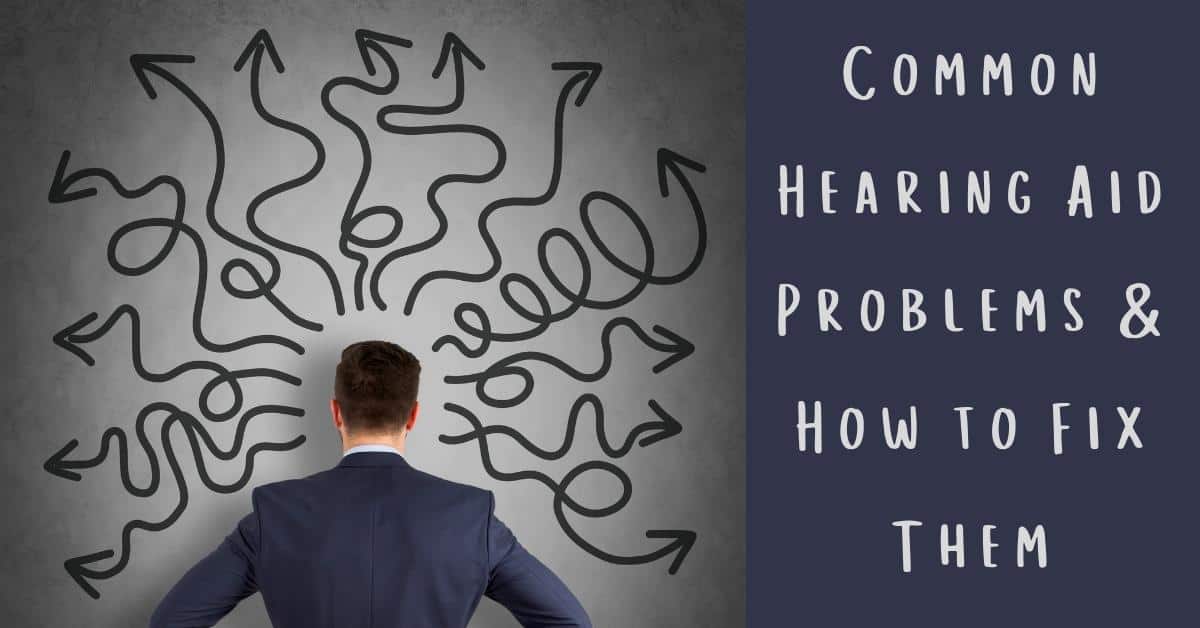
- Common Misconceptions That Delay Hearing Loss Diagnosis - June 6, 2025
- Signs Your Earwax Buildup Needs Professional Attention - May 29, 2025
- Preparing for a Hearing Test and What You Should Bring - May 16, 2025
If you’ve recently invested in a new set of hearing aids, congratulations! Millions of individuals wear these advanced, custom-fit, digitally programmed and personalized hearing solutions every day. These devices are fitted specifically for your hearing needs and will make a huge difference in so many aspects of your life at home, in your personal relationships, in your independence and at work.
Like any new device, it takes time to understand how to make sure they are working at their best for you. If you are experiencing problems with your new hearing aids, do not fret. There are many common problems that people new to hearing aids experience. Many of the most common hearing aid problems can be fixed from the comfort of your own home if you follow these few simple tips and tricks.
Your Hearing Aids are Too Quiet
If your hearing aids seem very quiet, even if you’ve turned the volume up all the way, then there’s probably sometime wrong. Time to do a little bit of troubleshooting to solve the problem.
- The first thing you should do is carefully examine the entire hearing aid. You are looking specifically for any cracks, moisture, or blockages such as a buildup of dirt or wax. If you discover anything, all you need is a quick cleaning with a soft cloth, and your hearing devices will be back to working like a charm. If you find any damage or cracks, your device will need to be repaired before it’s back in working order – contact us to schedule a repair appointment.
- If you do not find any blockage or damage, try adjusting the volume controls, or test out a different setting. Flip between different programs to see if all programs seem softer than usual or if it’s just one setting. It might not be the entire device that’s soft, but just a technical problem with one of the settings.
- If none of these tips make a difference, consider how long you’ve had your hearing aid, and whether it’s possible that your level of hearing loss has changed. Sometimes quiet hearing aids may mean your hearing abilities have changed. It’s important to visit us annually to have your hearing checked to make sure you are still hearing at your highest potential. Alternately, if your hearing aids are new, they may need to be adjusted.
Your Hearing Aids Sound Unclear
Do your hearing aids sound garbled, fuzzy or unclear? If you checked the volume and it fine but everything still seems distorted here are a few things you can try to fix the problem yourself. This is often an easy fix, and is usually an issue with the battery.
Turn off your device and open the battery door. Check for corrosion, discoloration, or rust. The ears can be a humid and damp environment for your hearing aids, so the batteries are often susceptible to damage from moisture. If the battery or the battery contacts, seem corroded, then throw out the battery and clean the contacts with a soft dry cloth. Replace the battery and try them out. This can often fix the problem.
Too Much Feedback
Most likely your hearing aids are designed to reduce or eliminate feedback, and have advanced programs that work to do just that. If you’re recently experiencing a lot of feedback, then something isn’t working correctly.
- If you hear a lot of whistling in your ears, take your hearing aids out and try putting them in again. If this is not a new problem, you may need to visit us and adjust the fit to make sure they’re sitting in your ears correctly.
- It could also be an issue with the volume of your hearing aids. Try turning the volume down to see if this helps quell your feedback issue.
Regular Maintenance & Repairs for Your Aids
Hearing aids are comprised of tiny electrical components that may experience wear and tear over time. If you’ve already trouble shot these common issues and you are still having issues, you’ll likely need to visit us at Hearing Aid Specialists of the Central Coast to have the problem assessed. Whether it’s simply due to aging or the units have been exposed to moisture, excessive wax, debris or physical damage, you’ll want your hearing specialist to evaluate the extent of repairs needed. If you are one of the millions of Americans who have hearing loss, and depend on your hearing aids to help you navigate your day, don’t let these common problems stop you from hearing.
